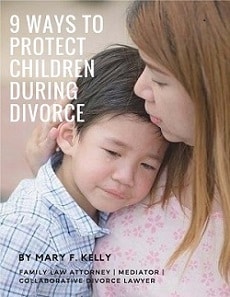What happens to the alienated parent?
There is a lot of advice about how to help a polarized child reduce or bridge the anger and antagonism toward the alienated parent. What happens to the alienated parent if there is no reconciliation while the child is young?
The alienated parent may struggle for years, making positive efforts of one kind of another to reach their child: therapy, text and email messages, sometimes gifts. He or she tries to be a parent, but the child stays distant, angry, sometimes even disrespectful. For some, nothing really works to dissolve the alienation. Are the efforts of the alienated parent in vain?
The other parent plays a key role in sustaining the alienation. That parent offers the child special love and affection, while emphasizing, or implying, that the alienated parent has no love or affection to give. The alienating parent criticizes and puts down the other parent in front of the child. Authorities on parental alienation syndrome say that the behavior is deeply rooted in the alienating parent’s childhood, so that he or she has an overwhelming need to be the “good” parent and vilify the “bad” parent.
Another reason is that the alienating parent sometimes provides gifts, travel, and other tangible benefits and makes them contingent upon the child rejecting the other parent. In addition, the child is usually afraid that the alienating parent will cut him or her off from emotional support and nurturing if the child makes positive overtures to or receives gifts or support from the alienated parent.
The alienating parent may be fostering alienation in indirect ways as well, such as refusing to talk about the other parent; not encouraging the child to call, email, text or visit the other parent; and not letting the other parent know about or be part of important events in the child’s life. This leaves the alienated parent in the extremely painful position of having little or no contact with his or her child.
Advice for alienated parents from experts, adult children of alienation and my law practice
♦ If possible, consider reaching out to the alienating parent to ask that he or she support your contact with your child.
♦ Enlist other people, especially family members, who might be able to arrange a meeting with your child at a family function (but be careful not to trick or surprise a child if it might push the child away).
♦ Get involved in your child’s progress in school: meet his or her teachers and therapists, participate in evaluation meetings.
♦ If the child has siblings who are in contact with you, continue to include the alienated child in plans you make to see them.
♦ If the alienating parent has remarried, that spouse may be amenable to helping you have direct, positive contact with your child.
♦ Be aware of alienating behavior—the other parent’s and your own.
♦ Don’t accuse your child of favoring or being manipulated by the other parent. Children do not like to be told they lack control of their own actions.
♦ Don’t debate with your child about the alienation.
♦ Don’t let your child dictate when and where you see each other. Give him or her a say, but not complete control.
♦ Never threaten to punish your child by not seeing him or her, or because he or she won’t see you.
♦ Maintain empathy for your child, no matter what. If your child is actively disrespectful, you may want to set limits for appropriate behavior, but do not retaliate or lash out at your child for the alienation.
♦ Never skip your child’s birthday, Christmas or Chanukah, or any significant event or holiday that may matter to your child. Send a card and gift. (Or a card but no gift, if your child has been disrespectful of you.)
♦ On social media, if you have access to your child’s profile, don’t be pushy or dramatic (like a public count of the days since you last saw your child). Don’t send repeated friend requests that the alienating parent might see and refuse.
♦ Set short-term and long-term goals for reestablishing a relationship with your child. Focus on small steps toward a larger goal so you don’t give up hope.
♦ Educate yourself on parental alienation and get support during this painful experience.
♦ Be respectful of the other parent in front of the children.
♦ Create fun times worth repeating.
♦ Be realistic. Don’t expect a complete turnaround in a short time.
Copyright © 2018 Mary F. Kelly




